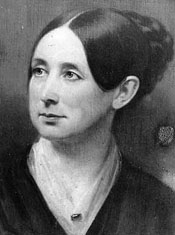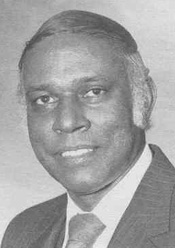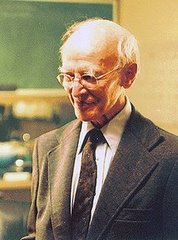Cooper, Peter
Peter Cooper (February 12, 1791-April 4, 1883), Unitarian inventor, entrepreneur, and college founder, was a real-life “rags to riches” hero whose love for humanity and
Peter Cooper (February 12, 1791-April 4, 1883), Unitarian inventor, entrepreneur, and college founder, was a real-life “rags to riches” hero whose love for humanity and
John Cordner (July 3, 1816-June 22, 1894) was unquestionably the most influential figure in setting the tone for the emerging Unitarian movement in nineteenth-century Canada.
Henry Noble Couden (November 21, 1842 – August 22, 1922) was Chaplain of the United States House of Representatives for twenty-five years (1895-1921). After being
John Albert Cousens (November 17, 1874-July 2, 1937), a Universalist businessman and educator, was for eighteen years the president of Tufts College. John was born
Caroline Bartlett Crane (August 17, 1858-March 24, 1935) was a Unitarian minister, suffragist, civic reformer, and social gospel advocate. Among the first wave of American
Margaret Brackenbury Crook (May 5, 1886–May 24, 1972) was a British Unitarian minister, women’s suffragist, peace activist, and religious studies professor. She was the first
Florence Ellen Kollock Crooker (Jan. 18, 1848 to April 21, 1925) was a Universalist minister and advocate of temperance and women’s suffrage. A capable organizer
Edward Estlin Cummings (October 14, 1894-September 3, 1962) was one of America’s leading 20th century poets. A prolific poet and painter, Cummings (in his poetry
Celio Secondo Curione (May 1, 1503-December 24, 1569), a classical scholar and professor of eloquence, was a leading religious and humanistic voice in the community
If your browser cannot read Polish characters, click here. The Czaplic family, nobles from Wołyń (Volhynia) in today’s Ukraine, were patrons and supporters of Arianism
If your browser can read Polish characters, click here. The Czaplic family, nobles from Wolyn (Volhynia) in today’s Ukraine, were patrons and supporters of Arianism
Caroline Wells Healey Dall (June 22, 1822-December 17, 1912), author, journalist, lecturer and champion of women’s rights, was a Unitarian community service worker, minister’s wife
Charles Henry Appleton Dall (February 12, 1816-July 18, 1886), a Unitarian minister to the poor in the United States and an early Unitarian minister in
A. Powell Davies (June 5, 1902-September 26, 1957), a Unitarian minister, was a renowned orator and a prominent social activist for civil liberties, government accountability,
The Universalist society in Oxford, Massachusetts, one of the earliest Universalist churches in America, hosted the conventions which led to the creation of the Universalist
George de Benneville (July 26, 1703-March 19, 1793), a physician, was a universalist evangelist in Europe and an early advocate of the doctrine of universal
Paul Dean (March 28, 1783-October 1, 1860) was a prominent Universalist evangelist and minister in the early 19th century, a rival of Hosea Ballou, a leader
Charles Dickens (February 7, 1812-June 9, 1870) is often considered the finest English novelist of the 19th century. His enduring comic characters are part of
Albert Charles Dieffenbach (July 4, 1876-October 6, 1963), a Unitarian minister and religious journalist, was the editor of The Christian Register, religion editor of The
John Hassler Dietrich (1878-1957), minister for almost a quarter of a century at the First Unitarian Society in Minneapolis, Minnesota, was among the first Unitarian

Dorothea Lynde Dix (April 4, 1802-July 18, 1887), in her early career a teacher and author of children’s books, was, in her unique and international
Emily Taft Douglas (April 19, 1899-January 28, 1994) was a congresswoman, civil rights activist, early feminist, actress, author, and Unitarian lay leader. Throughout her life
Paul Howard Douglas (March 26, 1892-September 24, 1976), a prominent Quaker and Unitarian United States Senator and economist, fought for civil rights, truth in lending,
William Drennan (May 23, 1754-February 5, 1820), a physician, poet, educationalist and political radical, was one of the chief architects of the Society of United
William Hamilton Drummond (August 1778-October 16, 1865), a leading 19th century Irish non-subscribing Presbyterian minister and Unitarian Christian theologian, was also an honored poet, an
John Sullivan Dwight (May 13, 1813-September 5, 1893) made important contributions to the Transcendentalist movement. A dedicated member of the Brook Farm commune while it

David Hilliard Eaton (1932-1992) was the first African American to serve as senior minister in a large Unitarian Universalist church. During his tenure, All Souls
James Henry Ecob (September 4, 1844-November 6, 1921) was a minister in Unitarian, Presbyterian, and Congregational churches, and participated in and advocated for interdenominational worship
Richard Eddy (June 21, 1828-August 16, 1906), a Universalist minister, wrote an enduringly valuable two-volume history, Universalism in America, 1884-86. Born and raised in Providence, Rhode
Samuel Atkins Eliot II (August 24, 1862-October 15, 1950) was the first president of the American Unitarian Association (AUA) to be given executive power; he
Abigail Adams Eliot (October 9, 1892-October 29, 1992) was a pioneer of the nursery school movement. She is best known for her work with young
Frederick May Eliot (September 15, 1889-February 17, 1958), longtime minister of Unity Church, St. Paul, Minnesota and Chair of the Unitarian Commission on Appraisal, served
Samuel Atkins Eliot II (August 24, 1862-October 15, 1950) was the first president of the American Unitarian Association (AUA) to be given executive power; he
Thomas Dawes Eliot (March 20, 1808-June 14, 1870) was a renowned Massachusetts attorney and a passionate progressive politician in the years leading up to and
Sallie Ellis (March 13, 1835-December 27, 1885), an infirm lay evangelist in Cincinnati, Ohio, created the work of the first Unitarian Post Office Mission which
Ralph Waldo Emerson (May 25, 1803-April 27, 1882) began his career as a Unitarian minister but went on, as an independent man of letters, to
Sarah Otis Ernst (July 23, 1809-December 25, 1882), one of the most effective radical abolitionists in the West, organized the Cincinnati Anti-Slavery Sewing Circle, whose
Roger Frederick Etz (April 30, 1886-December 19, 1950) was a parish minister and a major figure in the Universalist denomination for forty years. He was
William Farwell (January 6, 1749-December 11, 1823), one of the founding generation of American Universalist evangelists, organized societies in the neighborhood of Charlestown, New Hampshire
Jesse Babcock Ferguson (January 19, 1819-September 3, 1870), a renowned orator and minister in the Antebellum South, converted to universalist and unitarian beliefs. His conversion
Millard Fillmore (January 7, 1800-March 8, 1874), the thirteenth president of the United States, worked to preserve the union from the sectional interests that threatened
Ebenezer Fisher (February 6, 1815-February 21, 1879), Universalist minister and educator, was the first president of the Theological School at St. Lawrence University in Canton,
Arthur W. Foote II (January 18, 1911-December 9, 1999) was a Unitarian minister who chaired the commission that prepared the first hymnal after the Universalist
Arthur Foote (March 5, 1853-April 4, 1937), Unitarian church musician and influential music teacher, was a leading member of a group of composers known as
Henry Wilder Foote (February 2, 1875-August 27, 1964) was a Unitarian minister, scholar, teacher, and hymnologist. As Chair of a joint Universalist and Unitarian commission
John Murray Forbes (February 23, 1813-October 12, 1898), a leading Boston businessman and philanthropist, financed and operated a great nineteenth century industrial empire. He and
James Freeman (April 22, 1759-November 14, 1835), Minister of King’s Chapel in Boston for 43 years, was the first preacher in America to call himself
Victor Alonzo Friend (July 21, 1870-January 2, 1952), a well-known Boston-area businessman whose company produced Friend’s Brick Oven Baked Beans, was a prominent Universalist lay
Jacob Frieze (1789-1880), a Universalist minister from New England, was an early missionary to North Carolina. After retiring from the ministry he became a Rhode
Stephen Fritchman (May 12, 1902-May 30, 1981) was a Unitarian minister. During the 1940s, he was Director of Youth Work and editor of The Christian Register for
Arthur Buckminster Fuller (August 10, 1822-December 11, 1862) was a Unitarian clergyman who endeavored to give the Unitarian Church appeal to all social classes and
Margaret Fuller (May 23, 1810-July 19, 1850) “possessed more influence on the thought of American women than any woman previous to her time.” So wrote
(May 16, 1836-December 15, 1913), educator and minister, was the third Unitarian minister to arrive in New Zealand. As a school inspector he influenced educational
Ezra Stiles Gannett (May 4, 1801-August 26, 1871) was a prominent Unitarian minister, editor, and a founder of the American Unitarian Association (AUA). He was
Elizabeth Cleghorn Stevenson Gaskell (September 29, 1810-November 12, 1865), a lifelong Unitarian and the wife of an eminent Unitarian minister, was the author of a
William Gaskell (July 24, 1805-1884), minister of Cross Street Chapel in Manchester, England for more than fifty years, was a pioneer in the education of
Thomas Gibson (September 5, 1777-July 1, 1863) and his only surviving son Thomas Field Gibson (March 3, 1803-December 12, 1889) were prominent silk manufacturers in
Lucia Fidelia Woolley Gillette (April 8, 1827-October 14, 1905) was one of the first women to be ordained to the Universalist ministry in the United
Caroline Howard Gilman (October 1, 1794-September 15, 1888), one of the most popular women writers of the first half of the nineteenth century, was born
Samuel Gilman (February 16, 1791-February 9, 1858) was arguably the most important and dedicated leader of the ultimately unsuccessful effort to establish Unitarianism in the
John Charles Godbey (September 26, 1927-November 5, 1999), a Unitarian Universalist minister, scholar, historian, and teacher, spent his entire professional life, 1962-96, as a faculty
If your browser cannot read Polish characters, click here. Piotr of Goniądz (c. 1525-1573), most commonly known by his Latin name Petrus Gonesius (he was
If your browser can read Polish characters, click here. Piotr of Goniadz (c. 1525-1573), most commonly known by his Latin name Petrus Gonesius (he was
Judith Ripley Goodenough (October 25,1942-September 18, 1990), who wrote as J. B. Goodenough, was a Unitarian Universalist poet and musician. Judith, also known as Judy,
Don Speed Smith Goodloe (June 2, 1878 – September 2, 1959), founding principal of what is now Bowie State University, was the first African-American graduate
Alexander Gordon (June 9, 1841-February 21, 1931), a Unitarian minister and educator, was a prominent historian of religion, particularly of religious dissent. Describing himself as
Eleanor Elizabeth Gordon (October 10, 1852-January 6, 1942) was part of an informal network known as the “Iowa Sisterhood” of Unitarian women ministers and often
Augustus Graham (baptized April 15, 1776-November 27, 1851) was a manufacturer, social activist and philanthropist. Because of his name change and the mystery surrounding him,
Dana McLean Greeley (July 5, 1908-June 13, 1986), a Unitarian minister, peace activist, and civil rights leader, was the last president of the American Unitarian
Horace Greeley (February 3, 1811-November 29, 1872), Universalist journalist, reformer, and politician, is best known as the longtime, innovative publisher and editor of the New
Robert Edward Green (September 30, 1934-January 15, 2003) was a religious humanist and Unitarian Universalist minister who served churches in Massachusetts, Ohio, Vermont, Michigan, and,
Matteo Gribaldi Mofa (c.1505-September 1564), an eminent Italian legal scholar and university professor, was an Arian and a champion of Michael Servetus. Because of his personal
Lincoln Ashton Gribble (March 12, 1930-August 8, 2012) came from a family long associated with Unitarianism. From an early age he harbored the desire to
Edvard Grieg (June 15, 1843-September 4, 1907), considered Norway’s greatest composer, was the first to create an internationally celebrated body of musical works inspired by
Edward Everett Hale (April 3, 1822-June 10, 1909) was one of the most prominent American Unitarian ministers of the last half of the nineteenth century.
Frank Oliver Hall (March 19, 1860-October 18, 1941) was an inspiring preacher and social gospeler who founded the Universalist Commission on Social Service. He served
Owen Glenbrook Hansen (September 24, 1923-August 30, 2006) was born into a family with a strong tradition of independent thought: Pacifism and freethought on his
Frances was born in Baltimore, Maryland, to free parents whose names are unknown. After her mother died in 1828, Frances was raised by her aunt
Clarence J. Harris (March 16, 1873-November 27, 1941) was a minister who served both Universalist and Unitarian congregations. During the early years of the motion
Alice Mildred Harrison (July 27, 1906-June 13, 1989), a religious educator, was a pioneering leader and organizer of youth programming and activities for the Universalist

Charles Hartshorne (pronounced Harts-horne—as in “deer’s horn”) (June 5, 1897-October 9, 2000) was the 20th century’s leading exponent of process theism. In his long career
A. Eustace Haydon (1880-1975), a pioneer in the study of world religions, was a leader of the Humanist movement. Born in Canada, he was ordained
Frederic Henry Hedge (December 12, 1805-August 21, 1890) was a Unitarian minister, an early Transcendentalist leader, a historical theologian, a German scholar and translator, and
Brooke Herford (February 21, 1830-December 21, 1903) was a Unitarian minister, noted preacher, and author, who served several important churches in Great Britain and America.
Thomas Wentworth Higginson (December 22, 1823-May 9, 1911) was one of the most distinguished and multi-talented Unitarians of the nineteenth-century, yet few people today are
Richard Hildreth (June 28, 1807-July 11, 1865) was a journalist, philosopher, historian, and antislavery activist. His 1836 novel The Slave is considered the first American antislavery novel.
Dr. Lotta Hitschmanova (November 28, 1909-August 1, 1990), a Czech immigrant to Canada from war-ravaged Europe, was the founder of the Unitarian Service Committee of
Samuel Hoar (1778-November 2, 1856), a native of Lincoln, Massachusetts, and Sarah Sherman (1785-1862) of New Haven, Connecticut married in the fall of 1813 and
If your browser cannot read Polish characters, click here. Gabriel Hojski (ca.1555-1632) and his son Roman Hojski (ca.1585-1635), nobles from Wołyń (Volhynia) in today’s Ukraine
If your browser can read Polish characters, click here. Gabriel Hojski (ca.1555-1632) and his son Roman Hojski (ca.1585-1635), nobles from Wolyn (Volhynia) in today’s Ukraine
Edith Blackwell Holden (September 26, 1871-April 6, 1920) was a British artist and art teacher, known in her time as an illustrator of children’s books.
Horace Holley (February 13, 1781-July 31, 1827) was a Unitarian minister, a popular orator and President of the University of Transylvania in Lexington, Kentucky. Mary
John Holmes (January 6, 1904-June 22, 1962), a poet and critic, was a teacher of literature and modern poetry at Tufts University for 28 years.
John Haynes Holmes (November 29, 1879-April 3, 1964), a Unitarian minister and social activist, was prominent the Unitarian movement throughout much of the first half
Julia Ward Howe (May 27, 1819-October 17, 1910), little known today except as author of “The Battle Hymn of the Republic,” was famous in her
Samuel Gridley Howe (November 10, 1801-January 9, 1876), founding director of the Perkins School for the Blind, was a leading figure in the early history
Harm Jan Huidekoper (April 3, 1776–May 22, 1854) was a businessman, philanthropist, essayist and lay theologian, a vice president of the American Unitarian Association, and
Homer Alexander Jack (May 19, 1916-August 5, 1993) was a Unitarian Universalist minister and early activist for peace, disarmament, racial equality and social justice. An
Lawrence Pearsall Jacks (October 9, 1860-February 17, 1955), or L. P. Jacks, as he was always known, was probably the most widely known British Unitarian
Thomas Jefferson (April 13, 1743-July 4, 1826) is known the world over as the principal author, in 1776 at age 33, of the Declaration of